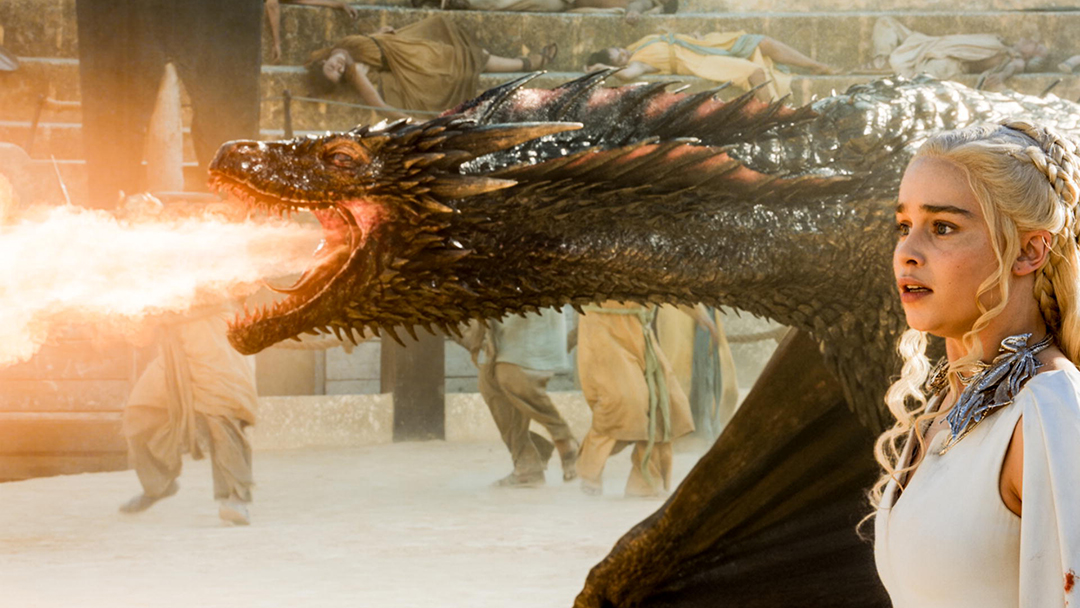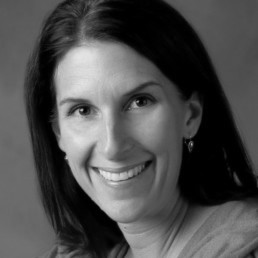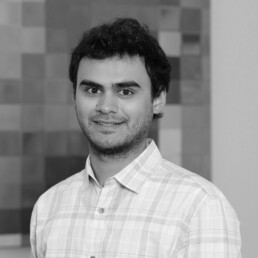The Math Doesn't Add Up in America’s Gun Debate

Technology has evolved quite a bit faster than biology. Conflict is natural – solving conflict with assault weapons is not.
In 1789, the Second Amendment authors did not foresee semi-automatic rifles firing 30 rounds in 15 seconds (the racial and historical context also purported a much different application of the well-regulated militia’s rights to bear arms, and intent).
My initial thesis for this blog was that following the money would unveil why guns specifically designed to kill people continue to be sold and supported by so many in American culture, and there is a lot that is obvious to support this trail. But, overall, the numbers just don’t add up. The total sales of guns to civilian Americans is surprisingly small. The amount spent on gun lobbying is dwindling. The revenues and the expenditures just do not justify the senseless violence. The influence is out of whack with the math. It is solvable. We can all be on the same team, here.
According to the IBIS report, the total sales of guns and ammunition was $11 billion in 2018, and the industry employs about 84,000 people. Even if the overall size of the gun industry is many times that, it still pales compared to even individual mega-corporations in the U.S. with revenues over $100 billion. Walmart itself has annual revenues over $500 billion and employs more than 2 million people (yes, Walmart also sells about 20% of overall ammunition sales in the U.S., so there is clearly some intersection here). Here is a list of some of the largest companiesby revenues.
The NRA only spent about $56 million during the 2016 elections. Their revenues are going down.
When I started this blog, I hypothesized it wouldn’t be possible to fix the current gun industry in America. While researching, I realized that changing the equation is possible. The debate does not need to be intractable. The common enemy is the senseless violence. Bi-partisan common sense measures, background checks, and an assault weapons ban are just the start as we search for more inclusive bottom lines. The math can be beat.
Ed Stack, the gun-owning CEO of Dick’s Sporting Goods, showed incredible courage by changing the way the sports company sells guns. Stack changed the math by eliminating the sale of semi-automatic weapons and raising the age of any firearm to 21 years. Other companies have followed this leadership, for example, Milwaukee-based Penzey’s Spices leads with anti-violent messaging in their marketing. And, perhaps companies like Google, whose company code started with “Don’t Be Evil” and also has a good run of financial success, can join a coordinated effort to proactively promote less violent messaging.
The NRA has an opportunity to rebrand and embrace gun safety and a push a hunting and sport focus in a more sustainable way. They might even reverse their current decline. Evolved capitalism demands longer term, inclusive horizons. Families and young people are demanding a different approach. In a gathering of gun violence victims, Brenda Moss rallied people to fight for change, drawing from her personal experience.
At CoPeace, we use the Head + the Heart + the Math to look for solutions in a fresh way, searching for both a strong financial return and measurable positive social or environmental impact. It is time to harness our collective biology and change the tools of this specific math. We can do it together. We can do it now.
Craig Jonas is the CEO and founder of CoPeace. As a forward-thinking holding company, CoPeace is building a portfolio of carefully selected for-profit companies with measurable social and environmental impact. To learn more about impact investing, check out CoPeace’s Intro to Impact Investing.
Global Citizens

Recently, I had the pleasure and honor of meeting astronaut Michael Massimino. He completed four space walks and has worked on the Hubble Space Telescope. I must admit, the kid in me was starstruck — a real life astronaut!
Besides being one of the most humble people I’ve ever met, Michael also spoke extremely earnestly about his time in space. When asked what one thing he took from his experience in space, Michael said without hesitation, “I realized, I was a global citizen.”
Come on! Now that’s an answer!
 Mike went on to explain how, in our lives, we go through a progression of being citizens of our town, our state, and — of course — our country. He mentioned the pride he felt as an astronaut, representing the United States. But once out in space, looking at Earth, a new perspective emerges that highlights how small the earth really is — its fragility and shared collective place where we all live. It dawned on him that we are all just citizens of the world. Now that’s an epiphany I can get behind. It happened in space!
Mike went on to explain how, in our lives, we go through a progression of being citizens of our town, our state, and — of course — our country. He mentioned the pride he felt as an astronaut, representing the United States. But once out in space, looking at Earth, a new perspective emerges that highlights how small the earth really is — its fragility and shared collective place where we all live. It dawned on him that we are all just citizens of the world. Now that’s an epiphany I can get behind. It happened in space!
As I reflected on this (and told the story to anyone who would listen), it occurred to me that if we all took a little bit of that mentality – acted like citizens of the world – we would have the power to create the change needed in our world. We should take pride, not only in the colors of our individual flags, but in our world and fellow citizens.
Equality, democracy, and freedom are all global issues, and we need to address them as a united front. It is the only way we can make progress. At CoPeace, we believe impact is a global phenomenon, good ideas can come from every corner of the world, and democratizing the access to investments and capital for everyone is the only way to disrupt the inequality we currently face. To conclude this somewhat corny blog with a corny thought, let’s all take one small step together to truly make a giant leap for mankind, and start thinking and acting as citizens of the world.
Hanan Levin is a Senior Investment Advisor at CoPeace. As a forward-thinking holding company, CoPeace is building a portfolio of carefully selected for-profit companies with measurable social and environmental impact. To learn more about impact investing, check out CoPeace’s Intro to Impact Investing.
Defining the Millennial Generation

I was born in the heart of the Millennial generation – 1993 – to a middle class, liberal family. Old enough to remember getting a home computer and the dial up internet to come with it. Young enough to come of age with a smart phone in my pocket.
 It’s an interesting thing to be born into the peace and prosperity of the 1990s — only to enter adulthood in a world changed by a single terrorist event, a decade of war, and the greatest economic collapse in nearly a century.
It’s an interesting thing to be born into the peace and prosperity of the 1990s — only to enter adulthood in a world changed by a single terrorist event, a decade of war, and the greatest economic collapse in nearly a century.
The generation to follow mine – Generation Z– will be the first generation born into a world with constant screens and connectivity – raised amongst a sea of tablets and phones and told what to care about by social media. The American Generation Z is also the first modern generation to endure over 10 school shootings per year as a normality.
Students go to school analyzing which lunch table they could dive under, which classrooms would be the right ones to bunker in, and if they might sacrifice their life holding a door closed while being shot to death to save their childhood friends. These are the concerns of a 12-year-old attending school in the United States.
The last 30 years have bred two generations untrusting of democracy and capitalism, wary of the promises of politicians and businesspeople, surrounded by a continually polarizing society, and crowded by the voices and images of the collective internet of things. With immediate access to any piece of information in the world, the next generation can become knowledgeable about any topic, product, or organization within seconds. Research has shown Millennials and Gen Zs are more likely than previous generations to cut ties with a business if they offer products or services that negatively impact society or the environment.
Over the next 30 years, the Millennial generation is expected to inherit $30 trillion in economic wealth from Baby Boomers and Generation X. It will be the largest transfer of generational wealth in human history. It seems an appropriate time to attempt the biggest shift in economic strategy in human history. In 30 years, I will be 56, and I have every intention of looking someone younger in the face and telling them we solved the climate crisis and expanded human rights and equality.
It’s time for a different direction. It’s time we recognize the shortcomings of a profit-only model, which sacrifices people and planet. It’s time we place as much value on the long-term impacts of a company, as we place on the quarterly profits of a company. It’s time we define our generation and its impact on human history. It’s time we grow our money for good.
Jim Crawford is the Director of Communications at CoPeace. As a forward-thinking holding company, CoPeace is building a portfolio of carefully selected for-profit companies with measurable social and environmental impact. To learn more about impact investing, check out CoPeace’s Intro to Impact Investing.
Democratizing Investing, For Good

If you’ve ever taken a personal finance class, you’re probably familiar with the concept of early investing. One of the key takeaways I recall from my experience is that your teens and twenties are prime years to begin investing. Simply strike the perfect balance between expenses, saving, investing, and spending, and then let your money work for you.
 Of course, this quixotic vision proves relatively easy to attain for those who come from generational wealth or enjoy other privileges. However, the vast majority of teens and twenty-somethings today face increasing student loans, rising rents in areas of greatest opportunity, and sluggish wage growth. Expenses comprise an increasingly larger portion of that delicate balance in our personal finances. It becomes more difficult to partake in the investment space while seeing significant, steady returns. In other words, there is limited access to capital for the majority of young people today.
Of course, this quixotic vision proves relatively easy to attain for those who come from generational wealth or enjoy other privileges. However, the vast majority of teens and twenty-somethings today face increasing student loans, rising rents in areas of greatest opportunity, and sluggish wage growth. Expenses comprise an increasingly larger portion of that delicate balance in our personal finances. It becomes more difficult to partake in the investment space while seeing significant, steady returns. In other words, there is limited access to capital for the majority of young people today.
CoPeace disrupts the investment space by increasing access to capital for traditionally underserved and marginalized communities. Our anticipated Direct Public Offering (DPO) allows these communities to participate in the investment space at low personal cost, while simultaneously funding growing companies solving environmental or social issues in the world today. This enables CoPeace to aid in the process of building generational wealth, which makes striking that balance, and entering the investment space earlier, that much easier.
Jacob Miller is a financial analyst at CoPeace. As a forward-thinking holding company, CoPeace is building a portfolio of carefully selected for-profit companies with measurable social and environmental impact. To learn more about impact investing, check out CoPeace’s Intro to Impact Investing.

The stock market continues to adversely react to political tensions, by erasing a significant amount of value from all corners of the market without any distinction of industry, or company performance.
This isn’t the first time nor the last time that we see aggressive fluctuations that are tied more to fear, political posturing, and emotional reactions than to the actual value of individual stocks. To all you Game of Thrones fans out there [SPOILERS AHEAD], this is the equivalent of Daenerys completely destroying the city of King’s Landing with her dragon…which, I think we can all agree was a complete overreaction…what should we do? Diversify!

It has been a long-standing notion in the investing world that diversification and asset allocation are major contributors to long-term performance. Moreover, if we examine the top performers and true wealth creators we see that it is not enough to diversify just in stock and bonds (since they both reside in essentially the same public market – i.e., King’s Landing). It is prudent to have other asset classes in your portfolio, ones that are not correlated to public markets.
The catch? These asset classes, such as venture capital, private equity, and direct investment in companies, have an extremely high monetary threshold of entry – eliminating the ability for the majority of investors to access these and leaving them trapped in the path of the dragon. The solution? Democratize the investment world!
Here at CoPeace, through our different rounds of investing and our future direct public offering we provide a way for all investors, big or small, to diversify their investments by providing an extremely low threshold of entry to direct impact investing. This allows an access point for each investor’s capital to directly reach to companies that are doing good for the world in the private market and are not correlated to stock market fluctuations.
Hanan Levin is a Senior Investment Advisor at CoPeace. As a forward-thinking holding company, CoPeace is building a portfolio of carefully selected for-profit companies with measurable social and environmental impact. To learn more about impact investing, check out CoPeace’s Intro to Impact Investing.

Everyone loves a bargain, and I can personally attest to the near-euphoria a fashion bargain can illicit. But do we ever stop and ask ourselves, “Why is this t-shirt so cheap?” On the heels of Fashion Revolution Week, and the sixth anniversary of the Rana Plaza collapse in Bangladesh where over 1,000 garment workers died, let’s take a moment to find out.
Often referred to as “fast fashion,” the garment industry has evolved into a competitive marketplace centered around bulk manufacturing, requiring hyperspeed production at ultra-low costs. Trends are no longer designed to last for a season, but rather for just a few days or weeks. This intentionally drives the demand for the newest trend, requiring more garment production, and therein lies the vicious cycle. The results of this system are much greater than the ability to produce a cheap t-shirt:
- Fashion is the 2nd most polluting industry, runner-up only to oil and gas
- The fashion industry will take up 25% of the globe’s carbon footprint by 2050
- 150 billion new pieces of clothing are produced every year
- Only 10% of clothes donated to thrift stores get re-sold, the remaining go to landfill
- Slave labor and abhorrent working conditions are commonplace to drive down production costs
So the next time we walk into a store, and that $3 t-shirt is displayed front-and-center, let’s consider our options. Let’s ask #whomademyclothes? Let’s ask ourselves if we truly need it. Let’s use our purchasing power as a vehicle to create positive change, by supporting “slow fashion” brands that operate in more socially- and environmentally-responsible ways. Let’s disrupt the system that is not working for our global community. Let’s save $3 and so much more.
Meg Masten is the Chief Relationship Officer at CoPeace. As a forward-thinking holding company, CoPeace is building a portfolio of carefully selected for-profit companies with measurable social and environmental impact. To learn more about impact investing, check out CoPeace’s Intro to Impact Investing.
May 24, 2019
...Or We Are Screwed

Though I was six years old when Wisconsin Senator Gaylord Nelson, the founder of Earth Day, received a standing ovation at Denver’s Currigan Hall on April 22, 1970; his words must have penetrated deeply: “Earth Day can – and it must – lend a new urgency and a new support to solving the problems that still threaten to tear the fabric of this society… the problems of race, of war, of poverty, of modern-day institutions.”
I was living in Wisconsin then, and live in Denver now. I remember the Packers beating the Raiders in the 1968 Super Bowl, the moon landing in 1969, and I remember the first Earth Day in 1970. Senator Nelson was certainly quite prescient. Despite the raised awareness through the Earth Day campaigns, things have gotten much worse. In a 48-hour span this month, the Denver area experienced 80º weather with sunshine, followed closely by a “bomb cyclone” blizzard – the second this year. Climate change is wreaking havoc on our world and it requires dramatic alteration to our current business practices.
Unfortunately, none of this is new information. Fortunately, impact-driven investment is a growing industry, providing competitive returns, and actively working to fund businesses solving climate change challenges. According to the April 2019 Global Impact Investing Network, the size of the impact investing market has grown to $502 billion. And, Michael Holder of GreenBiz notes that the total sustainable/impact related investing has grown 34% globally since 2016 to over $30 trillion in 2018.
At CoPeace, we have started introducing some of our holding company and portfolio ideas to friends and family. We like the CoPeace idea of putting complementary solutions under one umbrella, using the organizing principle provided by the holding company approach (we will be announcing some of our early investments soon).
While I was in Wisconsin, my nephew, a senior in high school, returned from school as we were discussing CoPeace. He came through the door and proclaimed they had just talked about impact-grounded investments in his economics class. In the words of his economics teacher, “It is critical to demand more long-term responsibility from business or we are screwed.”
Sources:
https://history.denverlibrary.org/news/earth-day-turns-45and-dpl-conservation-collection-turns-55
http://www.nelsonearthday.net/docs/nelson_26-18_ED_denver_speech_notes.pdf
https://thegiin.org/assets/GIIN%20Market%20Sizing%20Report%20Press%20Release.pdf
https://www.greenbiz.com/article/global-sustainable-investing-assets-surged-30-trillion-2018
Craig Jonas is the CEO and founder of CoPeace. As a forward-thinking holding company, CoPeace is building a portfolio of carefully selected for-profit companies with measurable social and environmental impact. To learn more about impact investing, check out CoPeace’s Intro to Impact Investing.
The Proof is in the Pudding

The bottom-line has been the primary concern of traditional investment strategies. This strategy posits that the best investments are those with the greatest returns. This may be great for our bank accounts, but gone awry this can pose severe consequences for our local, national, and global communities.
Nowadays, more and more companies pursue the “triple bottom-line”: great fiscal returns, good for the planet, and provide positive social impact. Numerous articles document the widespread incorporation of positive environmental, social, and governance principles into corporate operations, and the market responds in turn. The evidence suggests SRI investments perform just as well as traditional investments. In some cases, SRI investments even outperform their counterparts. One question remains: how can one know their investments meet the triple bottom-line?
Fortunately, we have a wealth of tools at our disposal to aid in this daunting task. The natural and social sciences help diagnose the ills facing our society and evaluate the impact of our interventions. A recent article in the Harvard Business Review, Calculating the Value of Impact Investing, presents a metric, aptly named the “Impact Multiple of Money.”
Here at CoPeace, we use these tools to gain a holistic understanding of the companies in which we invest. Our Head + Heart + Math approach empowers us to not only meet the triple bottom-line, but exceed it. With CoPeace, you truly can Grow Your Money for Good.
Jacob Miller is a financial analyst at CoPeace. As a forward-thinking holding company, CoPeace is building a portfolio of carefully selected for-profit companies with measurable social and environmental impact. To learn more about impact investing, check out CoPeace’s Intro to Impact Investing.
Moneyball

“The inability to envision a certain kind of person doing a certain kind of thing, because you’ve never seen someone who looks like him do it before, is not just a vice. It’s a luxury. What begins as a failure of the imagination ends as a market inefficiency…”
Michael Lewis – MoneyBall, The Art of Winning an Unfair Game
As we continued to explore and expand CoPeace’s identity in the impact investing world, Michael Lewis’ book MoneyBall came to mind, or maybe it was my uncanny resemblance to Brad Pitt (the primary actor in the movie version), that triggered the thought….I guess we’ll never know.
In the book, Lewis discusses the shift that occurred to the sport of baseball when an innovative General Manager changed the way he looks at the game, spearheading the idea that a team can win championships without superstars, he showed that all you need is a group of players with great potential at their positions, working together for one common goal. He challenged the old “know how” and brought a new approach built on analytics and a team mentality – and what was the outcome?…EVERY team in baseball these days uses this methodology, and that’s how championships are won!
How does this apply to us? Just change the Words “General Manager” to CoPeace and “players” to the companies under the holding umbrella of CoPeace and….boom…we’ve changed the game of impact investing forever. We’re not looking for just any superstar; we are looking for innovative, socially responsible companies with great potential, that will consistently “hit singles” and run the bases. With our HEAD+HEART+MATH approach across several of these complimentary holdings, we’ve developed our own “MoneyBall” version of impact investing, resulting in a WIN for EVERYONE.
Hanan Levin is a Senior Investment Advisor at CoPeace. As a forward-thinking holding company, CoPeace is building a portfolio of carefully selected for-profit companies with measurable social and environmental impact. To learn more about impact investing, check out CoPeace’s Intro to Impact Investing.
On Why Chipotle Should Strive for B Corp Certification
Chipotle should consider pursuing B Corp certification. The Colorado-founded, Mexican-inspired, quick-service restaurant chain has been a pioneer in modern dining for the last 25 years, earning loyal patrons across all demographics, especially younger consumer segments. Rather than be content to follow industry trends, Chipotle and its founder Steve Ells have a history of blazing the trail for others to follow, essentially forging the fast-casual segment. This pioneering includes a tradition of sourcing only exceptional ingredients through responsible partners, all in an effort to serve customers “features from the realm of fine dining to the world of quick-service restaurants.” Since 2015, however, the company’s been preoccupied seeking solutions to diffuse negative attention and regain customer trust that’s eroded due to numerous reports of food-safety issues. Combine that negative press with known trends of younger consumers becoming more astute consumers, and it becomes obvious that the company has an uphill battle to earning back trust. The publicly-traded company’s current brand campaign, Food with Integrity, emphasizes Chipotle’s commitment…
“To sourcing the very best ingredients we can find and preparing them by hand. To vegetables grown in healthy soil, and pork from pigs allowed to freely root and roam outdoors or in deeply bedded barns. We’re committed because we understand the connection between how food is raised and prepared, and how it tastes. We do it for farmers animals the environment dentists crane operators ribbon dancers magicians cartographers and you. With every burrito we roll or bowl we fill, we’re working to cultivate a better world.”
This sort of message would earn most brands praise from customers and peers, but Chipotle’s recent track record adds skepticism to customer perception (though the health risks are arguably statistically insignificant from a food-safety perspective considering the high volume of sales). And for that, Chipotle’s message to customers requires a tangible accountability – a recognizable and industry-accepted certification – that they as a company cannot currently independently institute, due to their lacking customer trust. At present, the company only has a fiduciary duty to investors. To give credence to their claim of commitment to “cultivate a better world”, Chipotle should consider adding ‘B Corp Certification’ as its 52nd ingredient. For Real.
About CoPeace
CoPeace is a first-of-its-kind impact holding company. As a pending Certified B Corp itself, CoPeace is pursuing B Corp status because the founders believe in the mission, impact, and capital influence that having such a certification brings to the world of commerce. This model allows the CoPeace team to craft a portfolio of companies working towards complementary missions in any given social or environmental subsector, and ultimately to amplify its collective impact output.







